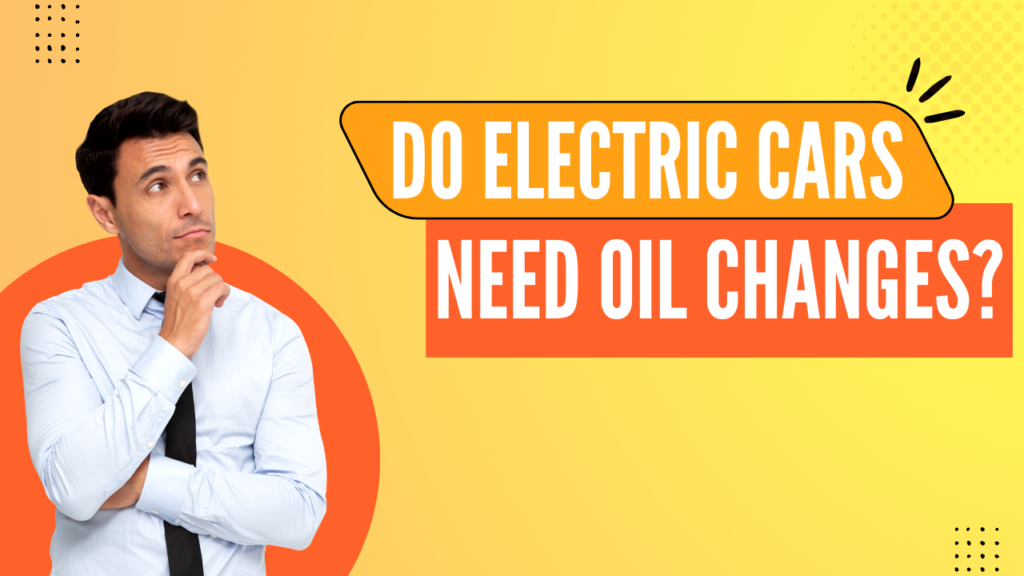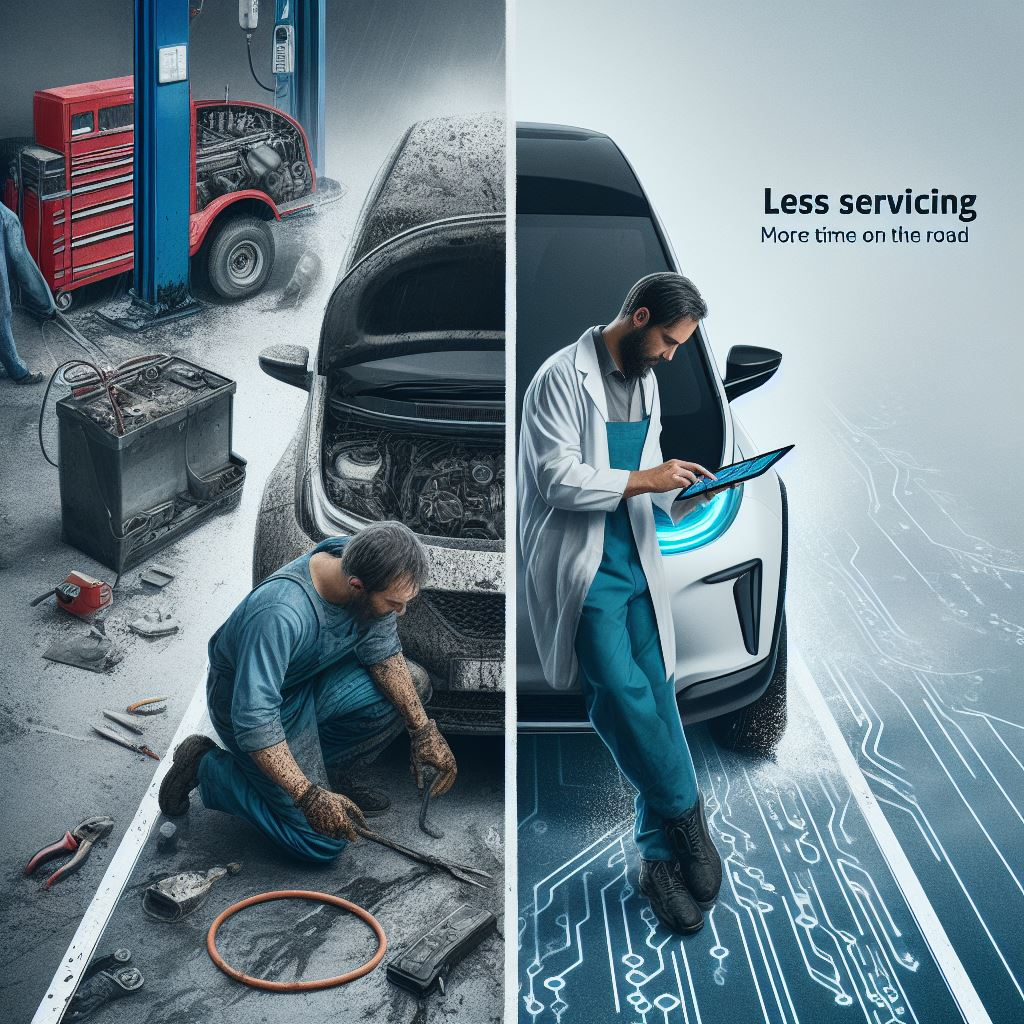
Table of Contents
Introduction: Do electric cars need oil changes?
In the ever-evolving landscape of automotive technology, electric cars have emerged as a beacon of sustainability and innovation. As more drivers transition to electric vehicles (EVs), questions naturally arise about their maintenance, with one persistent inquiry being: Do electric cars need oil changes? In this comprehensive guide, we delve into the intricacies of electric vehicle maintenance to demystify this common misconception.
How often do electric cars need oil changes?
Electric cars don’t need oil changes at all! Electric vehicles use electric motors instead of gasoline engines, and electric motors don’t have the same kind of moving parts that require lubrication with oil. So, you can cross oil changes off your list of maintenance to worry about with an electric car.
However, even though electric cars don’t need oil changes, they still do require some maintenance. For example, the coolant system, brakes, and windshield washer fluid will all still need to be checked and topped off or replaced periodically. Consult your car’s owner’s manual for the specific maintenance schedule.

How often do electric cars need servicing?
Electric cars generally need servicing less often than gasoline cars. Plan on routine checkups every 6 months to a year for brakes, tires, and coolant. Unlike oil changes, these checkups focus on optimizing performance and safety. Consult your car’s manual for specific intervals and additional maintenance like software updates. You’ll spend less time and money on maintenance compared to a traditional gasoline vehicle.
Do electric car need engine maintenance?
No, electric cars don’t need engine maintenance in the traditional sense. They don’t have internal combustion engines like gasoline cars, which require oil changes, spark plug replacements, and other routine maintenance tasks.
However, even though electric cars don’t need oil changes, they still do require some maintenance. For example, the coolant system, brakes, and windshield washer fluid will all still need to be checked and topped off or replaced periodically. Consult your car’s owner’s manual for the specific maintenance schedule.
What kind of maintenance does an electric cars need?
Electric cars ditch the oil changes, but still require some maintenance for optimal performance and safety. Here’s the breakdown:
- Regular checkups (every 6 months to a year): Focuses on brakes, tire rotations, and topping off fluids like coolant for battery and motor temperature regulation.
- Software updates: Similar to smartphones, electric cars may receive software updates to improve performance or fix bugs.
- Less frequent checks: Depending on the model, some EVs might require a look at the gearbox oil or transmission fluid at specified intervals.
Overall, electric car maintenance is less frequent and complex compared to gasoline vehicles.
Do electric car use any fluids?
Electric cars don’t use engine oil, but they do rely on several other fluids for optimal performance:
- Coolant: Manages battery and motor temperature.
- Brake fluid: Essential for braking system function.
- Windshield washer fluid: Keeps your windshield clean.
- Transmission fluid (sometimes): Lubricates gears in some EV transmissions.

Do electric cars have catalytic converters?
No, electric cars don’t have catalytic converters.
Catalytic converters are specifically designed to treat exhaust fumes from gasoline-powered engines. Since electric cars run on electricity and don’t have combustion engines, they don’t produce exhaust fumes and therefore don’t need catalytic converters. This is part of what makes electric cars more environmentally friendly.
Can normal garage service electric cars?
It depends. While some regular garages may be able to handle basic maintenance tasks on electric cars, like tire rotations or wiper blade replacements, they might not be equipped for servicing the high-voltage systems unique to electric vehicles.
Here’s a breakdown:
- Basic maintenance: Many garages can handle routine maintenance similar to gasoline cars (tires, brakes, fluids).
- EV-specific servicing: For tasks involving the electric motor, battery, or high-voltage systems, it’s safer to look for a garage with certified EV technicians. These technicians have the training and equipment to work on these components safely and effectively.
Do electric cars need an MOT?
Yes, electric cars still need an MOT (Ministry of Transport Test) in the UK, just like gasoline or diesel cars. The MOT test ensures a vehicle meets road safety and environmental standards.
These tests assess various aspects, including brakes, lights, emissions, and overall vehicle condition. So, even though EVs have fewer moving parts, they still need that MOT stamp of approval! 🚗✅
Do electric car use oil to charge?
No, electric cars don’t use oil to charge. They get their electricity from the power grid, which can be generated from various sources like hydropower, solar, wind, natural gas, or coal.
While the source of electricity might influence environmental impact, the car itself doesn’t use oil during the charging process.
Do electric car needs antifreeze?
Electric cars technically don’t need antifreeze in the traditional sense, but they almost always use a coolant system. Here’s the breakdown:
- Antifreeze: This is a mixture of coolant and water with a lower freezing point than water alone. It’s used in gasoline cars to prevent the coolant from freezing and damaging the engine block.
- Electric car coolant: Electric vehicles use a coolant system to regulate battery and motor temperature, similar to how a radiator works in a gasoline car. This coolant is a mixture of water and antifreeze (or a similar anti-corrosion additive) to prevent freezing in cold climates and overheating in hot weather.
- So, kind of: While electric cars don’t strictly need the “antifreeze” part of the equation to protect an engine from freezing, they do use a coolant with similar properties for temperature regulation. The owner’s manual will specify the exact coolant type your electric car needs.

Do electric cars needs alternators?
No, electric cars don’t need alternators. Here’s why:
- Alternator function: An alternator is a component in gasoline-powered vehicles that converts mechanical energy from the engine into electricity. This electricity is then used to recharge the car’s 12-volt battery, which powers the lights, radio, and other accessories.
- Electric car power source: Electric cars don’t have combustion engines. Instead, they rely on high-voltage batteries to power the electric motor.
- Inefficiency for EVs: An alternator in an electric car would be pointless and inefficient. It would essentially be using electricity from the battery to spin the alternator and generate electricity, creating unnecessary energy loss.
- DC-DC converter: Electric vehicles use a DC-DC converter instead. This converter takes the high voltage DC (direct current) power from the main battery and converts it to the lower voltage DC power needed for the car’s 12-volt accessories. This is a more efficient process compared to using an alternator.
Do tesla need oil changes?
No, Teslas don’t need traditional oil changes like gasoline-powered cars. Teslas are electric vehicles and use electric motors instead of internal combustion engines. Electric motors don’t have the same moving parts that require lubrication with oil.
However, it’s important to note that Teslas do use some fluids in certain parts:
- Gearbox or drive system: Some Tesla models might use a gearbox or drive system that requires synthetic oil for lubrication. But unlike engine oil, this synthetic oil typically doesn’t need regular replacements because it degrades much slower.
- Coolant: Teslas use coolant to regulate battery and motor temperature.
- Brake fluid: Essential for the proper functioning of the braking system.
- Windshield washer fluid: Keeps the windshield clean.
So, while Teslas don’t require oil changes in the traditional sense, they still benefit from regular maintenance checks as outlined in the owner’s manual.
Do electric cars have engine coolant?
Yes, electric cars even though they lack traditional engines, still use engine coolant. This coolant performs a similar function to antifreeze in gasoline cars:
- Regulates temperature: The coolant absorbs heat from the battery and electric motor to prevent overheating, which can damage these components.
- Prevents freezing: The coolant mixture (often with antifreeze properties) can withstand colder climates to avoid freezing and potential damage to the system.
So, while electric cars don’t have engines, they rely on coolant for optimal temperature management.
Conclusion: Do electric cars need oil changes
In conclusion, the conventional wisdom Do electric cars need oil changes. As the automotive industry undergoes a paradigm shift towards sustainability, electric vehicles emerge not only as eco-conscious alternatives but as low-maintenance, high-performance options. Understanding the nuances of electric car maintenance empowers drivers to make informed choices and contributes to a greener, cleaner automotive future.
the question of Do electric cars need oil changes? can be confidently put to rest. The distinctive engineering of electric vehicles renders this traditional maintenance practice obsolete. Instead, EV owners should focus on diligent battery maintenance, brake system checks, and staying abreast of software updates to ensure their vehicles operate at peak efficiency.
